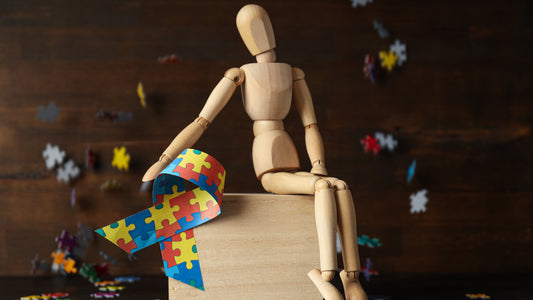Attention Deficit Disorder (A.D.D.) is a condition characterized by symptoms such as inattention, forgetfulness, and difficulty with organization. While medication is a common treatment option, many individuals and families seek non-medication strategies to manage A.D.D. symptoms. These approaches can be effective in improving focus, organization, and overall quality of life. This blog explores various non-medication interventions, including behavioral therapies, lifestyle changes, and other practical strategies.
Behavioral Therapies
Behavioral therapies are a cornerstone of non-medication treatment for A.D.D. These therapies focus on modifying behaviors, developing coping strategies, and improving organizational skills. Several types of behavioral therapies have been shown to be effective for A.D.D. management.
Cognitive-Behavioral Therapy (CBT): CBT is a structured, goal-oriented therapy that helps individuals identify and change negative thought patterns and behaviors. For those with A.D.D., CBT can be particularly beneficial in addressing procrastination, impulsivity, and negative self-talk. The therapy provides tools to challenge unhelpful thoughts and develop healthier, more productive behaviors.
Behavioral Therapy for Children: For children with A.D.D., behavioral therapy often involves working with parents and teachers to create consistent routines and reinforce positive behaviors. Techniques such as token systems, where children earn rewards for meeting specific goals, can be effective in encouraging desired behaviors. Additionally, setting clear expectations and using visual aids can help children understand and follow routines.
Social Skills Training: Many individuals with A.D.D. struggle with social interactions, which can lead to difficulties in relationships and communication. Social skills training helps individuals develop better social awareness, communication skills, and strategies for managing social situations. This training can be particularly helpful for children and adolescents as they navigate social environments like school.
Lifestyle Changes
In addition to behavioral therapies, lifestyle changes can play a significant role in managing A.D.D. symptoms. Implementing healthy habits and routines can improve cognitive function, reduce stress, and enhance overall well-being.
Regular Exercise: Physical activity is a powerful tool for managing A.D.D. symptoms. Exercise increases the levels of neurotransmitters such as dopamine and norepinephrine, which play a crucial role in attention and focus. Activities like aerobic exercise, yoga, and team sports can help improve concentration, reduce impulsivity, and enhance mood. Incorporating regular exercise into daily routines can also help manage stress and improve sleep quality.
Balanced Diet: Nutrition has a direct impact on brain function and can influence A.D.D. symptoms. A balanced diet rich in whole foods, lean proteins, healthy fats, and complex carbohydrates can support brain health. Omega-3 fatty acids, found in fish, flaxseeds, and walnuts, are particularly beneficial for cognitive function. Additionally, avoiding processed foods, excessive sugar, and artificial additives can help prevent fluctuations in blood sugar levels that may exacerbate symptoms.
Sleep Hygiene: Adequate sleep is essential for optimal brain function. Individuals with A.D.D. often experience sleep difficulties, which can worsen symptoms such as inattention and irritability. Establishing a consistent sleep routine, creating a calming bedtime environment, and limiting screen time before bed can improve sleep quality. Addressing sleep disorders, such as sleep apnea or insomnia, is also crucial for effective A.D.D. management.
Mindfulness and Meditation: Mindfulness practices, including meditation, can help individuals with A.D.D. develop greater awareness of their thoughts and behaviors. Mindfulness involves focusing on the present moment and accepting it without judgment. This practice can reduce stress, improve emotional regulation, and enhance attention. Guided meditations, mindfulness apps, and breathing exercises are accessible ways to incorporate mindfulness into daily life.
Organizational Strategies
Organization can be a significant challenge for individuals with A.D.D. Developing effective organizational strategies can improve productivity, reduce stress, and create a more structured environment.
Time Management: Effective time management is essential for managing tasks and responsibilities. Tools such as planners, calendars, and digital apps can help individuals track assignments, appointments, and deadlines. Breaking tasks into smaller, manageable steps and setting specific time frames for each task can prevent procrastination and increase focus.
Creating Routines: Establishing daily routines can provide structure and predictability. Routines help individuals know what to expect and reduce the likelihood of forgetting important tasks. Consistent morning and evening routines, for example, can set the tone for a productive day and a restful night.
Decluttering and Organization: A clutter-free environment can reduce distractions and improve concentration. Organizing physical spaces, such as workstations and living areas, can make it easier to find necessary items and stay focused. Using organizational tools like labeled bins, folders, and checklists can help maintain order and streamline daily tasks.
Setting Priorities: Prioritizing tasks is a critical skill for managing A.D.D. symptoms. Individuals can benefit from identifying the most important tasks and focusing on those first. The Eisenhower Matrix, a tool that categorizes tasks based on urgency and importance, can help individuals prioritize effectively. Learning to delegate less critical tasks can also reduce overwhelm and improve focus on high-priority activities.
Environmental Modifications
Creating an environment that supports focus and minimizes distractions is crucial for managing A.D.D. symptoms. Both physical and sensory aspects of the environment can be adjusted to improve concentration and productivity.
Minimizing Distractions: Reducing distractions in the workspace or study area is essential. This can include turning off unnecessary electronic devices, using noise-canceling headphones, or setting boundaries with family members or colleagues during work or study time. Creating a designated, quiet space for work or study can help individuals concentrate better.
Sensory Considerations: Some individuals with A.D.D. may be sensitive to sensory stimuli, such as bright lights, loud noises, or strong smells. Making adjustments to the sensory environment, such as using soft lighting, playing calming background music, or ensuring comfortable seating, can help reduce sensory overload and improve focus.
Support Systems
Having a strong support system is vital for individuals managing A.D.D. Support can come from family, friends, teachers, colleagues, and mental health professionals.
Family and Friends: Educating family and friends about A.D.D. can foster understanding and support. Open communication and empathy can help create a supportive home environment. Family members can also assist with implementing organizational strategies and maintaining routines.
Educational and Workplace Accommodations: For students and employees with A.D.D., accommodations can be essential for success. In educational settings, accommodations might include extended time for tests, preferential seating, or the use of technology aids. In the workplace, accommodations could involve flexible work hours, the option to work in a quiet space, or the use of task management tools.
Professional Support: Mental health professionals, including therapists, counselors, and coaches, can provide valuable support for managing A.D.D. They can offer guidance on coping strategies, provide accountability, and help individuals navigate challenges. Support groups, both in-person and online, can also offer a sense of community and shared experiences.
Conclusion
While medication can be an effective treatment for A.D.D., many individuals benefit from non-medication strategies that address the condition's behavioral, lifestyle, and environmental aspects. Behavioral therapies, lifestyle changes, organizational strategies, and support systems all play a crucial role in managing A.D.D. symptoms and improving quality of life.
At Amen University, we offer resources and education on effective non-medication strategies for A.D.D. management. Our courses provide evidence-based insights and practical tools to help individuals and families navigate the challenges of A.D.D. By exploring these non-medication interventions, individuals with A.D.D. can develop personalized strategies to enhance focus, organization, and overall well-being.

 Amen University
Amen University







